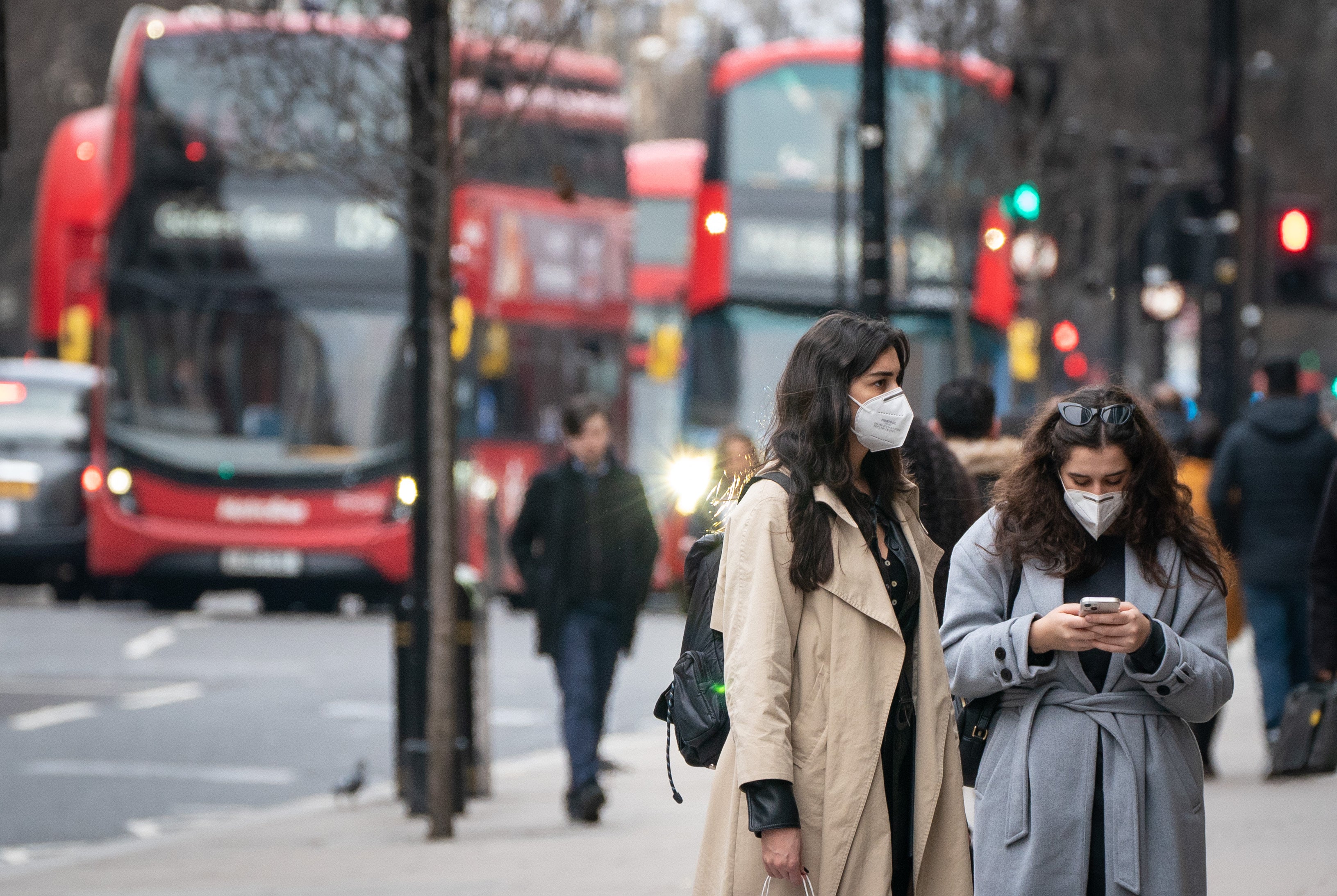Omicron drags UK economy to slowest growth in 11 months
The IHS Markit/CIPS flash UK composite PMI report came in at 53.4 for January so far.

Your support helps us to tell the story
From reproductive rights to climate change to Big Tech, The Independent is on the ground when the story is developing. Whether it's investigating the financials of Elon Musk's pro-Trump PAC or producing our latest documentary, 'The A Word', which shines a light on the American women fighting for reproductive rights, we know how important it is to parse out the facts from the messaging.
At such a critical moment in US history, we need reporters on the ground. Your donation allows us to keep sending journalists to speak to both sides of the story.
The Independent is trusted by Americans across the entire political spectrum. And unlike many other quality news outlets, we choose not to lock Americans out of our reporting and analysis with paywalls. We believe quality journalism should be available to everyone, paid for by those who can afford it.
Your support makes all the difference.Growth in the UK economy slowed to its lowest in 11 months as the spread of Omicron variant weighed on consumer activity, according to early economic data.
The IHS Markit CIPS flash UK composite PMI report came in at 53.4 for January so far, representing the lowest figure since the UK was in lockdown last spring.
It reflected a further slowdown following the reading of 53.6 for December.
Scores above 50 represent growth, while anything below that is a contraction, meaning the UK’s private sector continued to expand during the quarter despite the slight slowdown in activity.
Chris Williamson, chief business economist at IHS Markit, said: “A resilient rate of economic growth in the UK during January masks wide variations across different sectors.
“Consumer-facing businesses have been hit hard by Omicron and manufacturers have reported a further worrying weakening of order book growth, but other business sectors have remained encouragingly robust.”
The consumer-facing services industry saw the growth in activity slowdown again, moving to a reading of 53.3 from 53.6 in December.
It was the third month in a row the sector weakened and surveyed firms blamed the loss of momentum on continued Covid-19 disruption and subdued demand from cautious customers.
Manufacturers also reported a slowdown in activity as new order volumes sank to their lowest since January 2021.
Some manufacturers noted lower sales to customers hit by Omicron restrictions, while others suggested that forward-purchasing to beat new price lists for 2022 had weighed on demand in January.
The survey also highlighted that cost inflation remained “stubbornly high” and accelerated again to close in on last November’s all-time high.
Duncan Brock, group director at CIPS (Chartered Institute of Procurement & Supply), said: “In the gloomiest month of the year what is also disappointing for the UK economy is price inflation returning with a vengeance with the second highest jump in business expenses since 1998.
“Staff wages and energy price hikes made up the bulk of the extra burden and businesses will inevitably pass on these costs to consumers.”